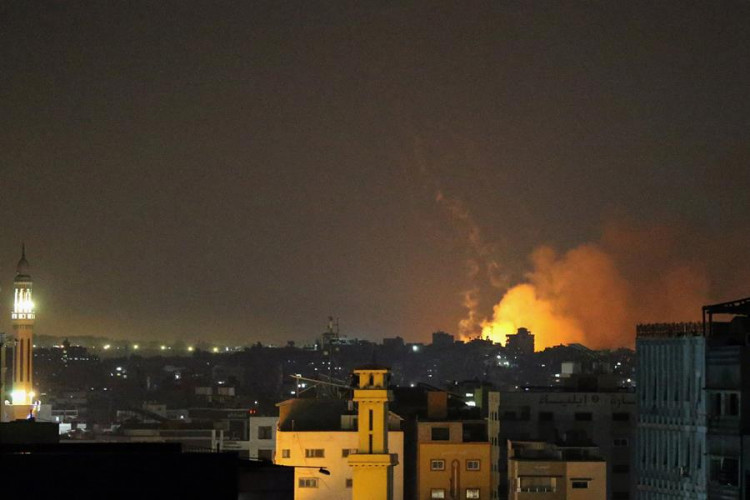A significant breakthrough in the Israel-Hamas conflict has been achieved with the announcement of a ceasefire agreement, set to commence at 7 a.m. local time on Friday. This development comes as a relief amidst the ongoing hostilities, marking a potential turning point in the crisis.
Qatar, playing a pivotal role in mediating the talks alongside the U.S. and Egypt, has outlined the systematic release of captives, with a minimum of 10 hostages from each side to be freed on the first day of the truce. Qatar's lead negotiator, Mohammed al-Khulaifi, emphasized the focus on civilian women and children, expressing hope that their release within the four-day truce would mark a significant step toward de-escalation.
Tzachi Hanegbi, Israel's national security adviser, confirmed the delay in the hostage release until Friday, aligning with the ceasefire's start. The agreement promises aid delivery to the region "as soon as possible," addressing the urgent humanitarian needs of the Palestinian population in Gaza.
The ceasefire, though initially expected to start a day earlier, faced last-minute adjustments. Majed al-Ansari, a spokesman for Qatar's Foreign Ministry, highlighted the complex nature of negotiations but affirmed the commitment to the truce. The announcement brought a moment of respite for the 2.3 million Palestinians in Gaza who have endured intense Israeli bombardment, as well as for families in Israel concerned about the fate of captives.
In the backdrop of this diplomatic progress, the region continues to grapple with the toll of the conflict. The Health Ministry in Hamas-ruled Gaza resumed its count of Palestinian casualties, indicating over 13,300 deaths, although these figures do not differentiate between civilians and militants. Communication breakdowns in the north have complicated efforts to obtain comprehensive casualty data.
Despite the truce, Israeli Prime Minister Benjamin Netanyahu vowed to continue the offensive against Hamas post-ceasefire, aiming to dismantle the group's military capabilities and influence. Netanyahu's resolve underscores the complexities of achieving a lasting peace in the region.
The ceasefire agreement also entails the gradual release of 50 hostages in stages, prioritizing women and children. The humanitarian impact of the war has been profound, with vast displacement and destruction in Gaza. The truce provides a glimmer of hope for those affected, enabling the entry of essential aid and the possibility of rebuilding lives.
This ceasefire marks a critical juncture in the Israel-Hamas conflict, offering a pause in hostilities and a chance for humanitarian intervention. However, the path to lasting peace remains fraught with challenges, requiring sustained diplomatic efforts and commitment from all parties involved.




